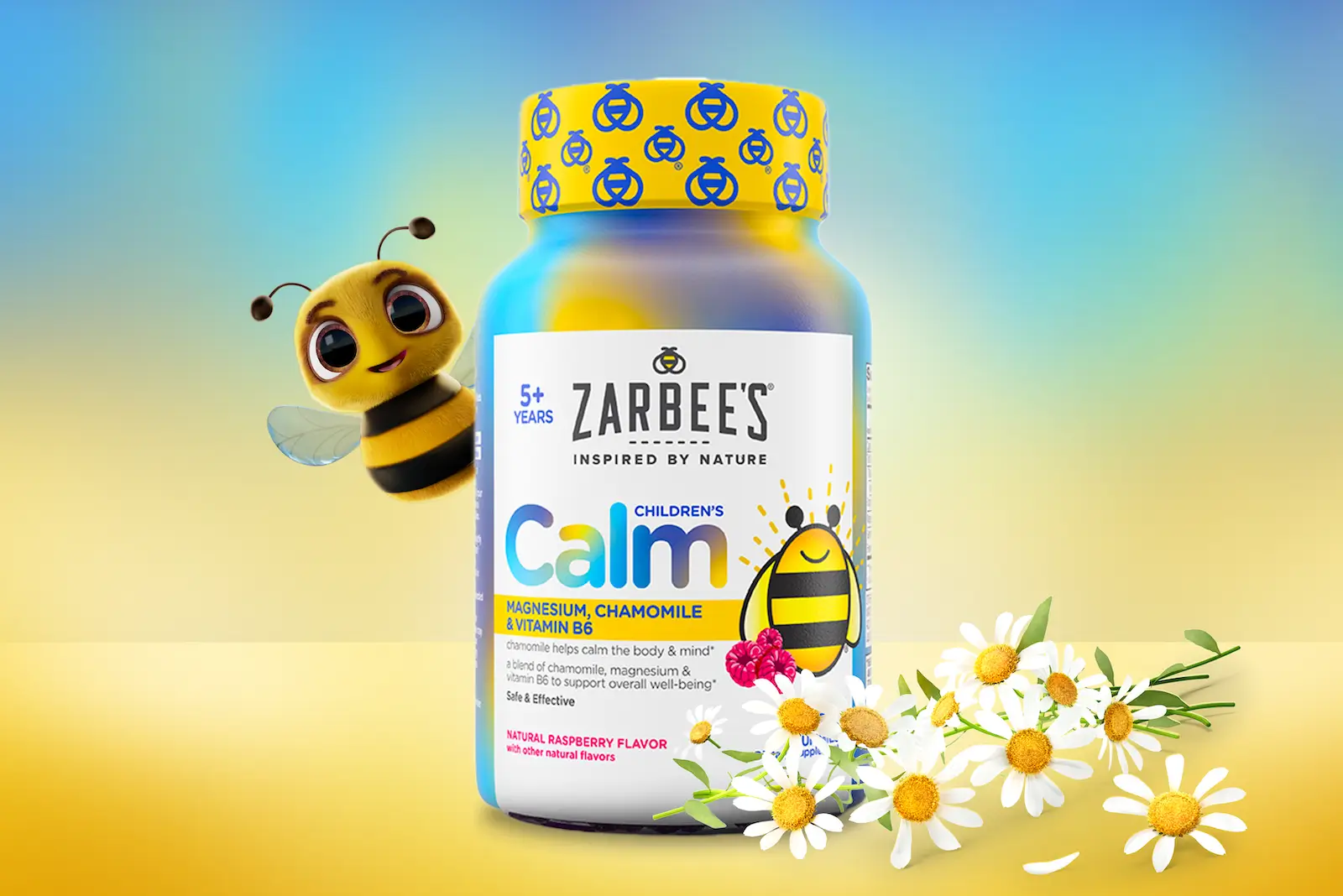Our Calm Ingredients | |
|---|---|
Magnesium | known to support healthy nerve function* |
Chamomile | with calming properties to help your child relax and unwind* |
Vitamin B6 | works with magnesium to help support a healthy nervous system* |
Children’s Calm Gummies, with magnesium, chamomile, and vitamin B6, are made for just that—to help support a calm body and mind so kids can take on the day.* Try them in addition to these healthy habits to help support emotional well-being:
Practice good bedtime habits — quality sleep can benefit learning skills, attention, behavior, and mental and physical health. For kids 5+ years, the National Institutes of Health recommends 9 -12 hours of sleep per night.1 For occasional sleeplessness, Zarbee’s Children’s Sleep with Melatonin may help.* To help your little ones relax and unwind before bed, try Melatonin-Free Gentle Bedtime products.*
Eating healthy foods — studies show that a healthy diet can support psychological well-being in children, including fewer emotional problems and higher self-esteem.2 Pack their lunchboxes with healthy snacks and nutrient-rich fresh fruits and vegetables.
Exercising daily — physical activity is essential for mental and physical health and can even give kids better coping skills. More exercise and less leisure screen time may result in less anxiety in kids.3 Let’s get our kids off their devices, off the couch, and moving each day.
Talking about feelings — children need to feel heard. Talking about their emotional experiences and labeling their feelings (i.e., happy, frustrated, disappointed) may help them feel less lonely, less impulsive, and more focused.4 If your child feels frustrated, try talking it out.
Sticking to a routine — daily routines and schedules are linked to healthy social and emotional development in early childhood. Children can benefit from predictable environments. Be consistent with regular morning, dinnertime, and bedtime routines.5
As always, if you have any questions or concerns about your child’s emotional or physical health, or if they are experiencing worries that are more than occasional, talk to your pediatrician.
No Yucky Stuff
No Drugs or Alcohol
No Artificial Sweeteners, or Flavors
Gluten-free
No Gelatin
Allergen Friendly*
*Allergen friendly formulated without: milk, eggs, fish, shellfish, tree nuts, wheat, peanuts, soy sesame.




